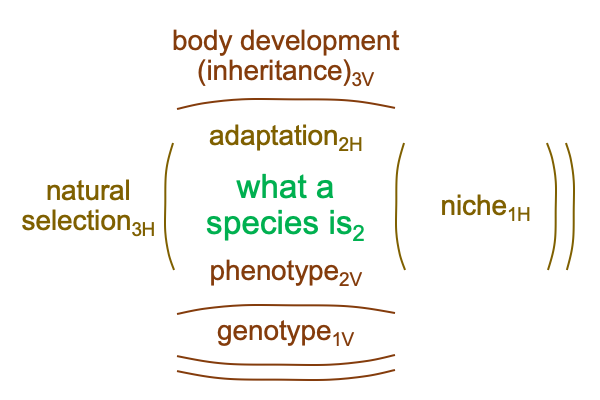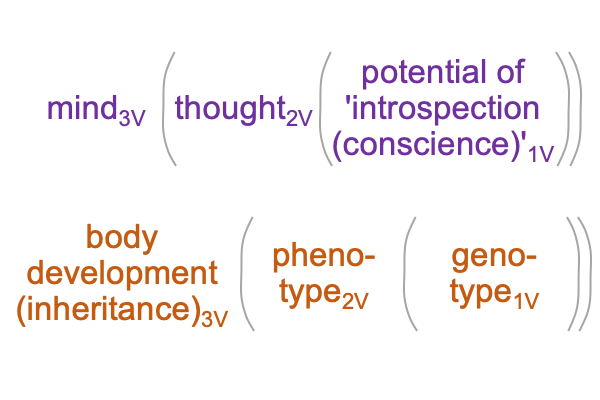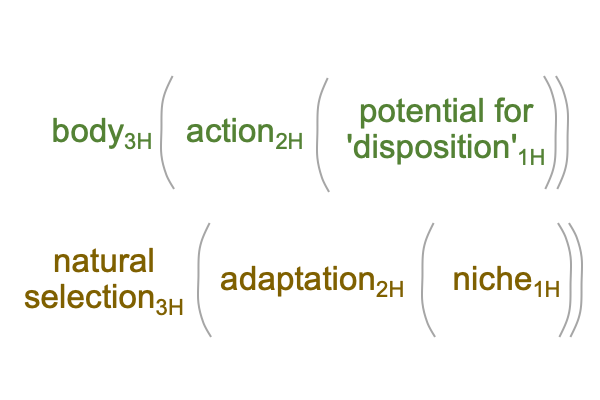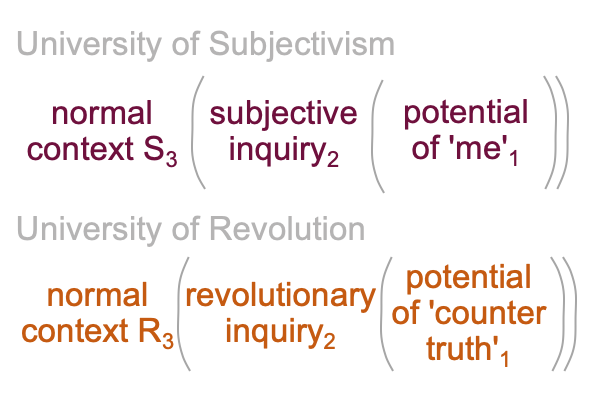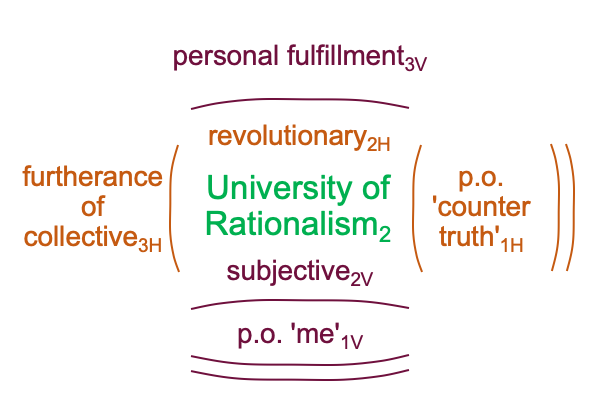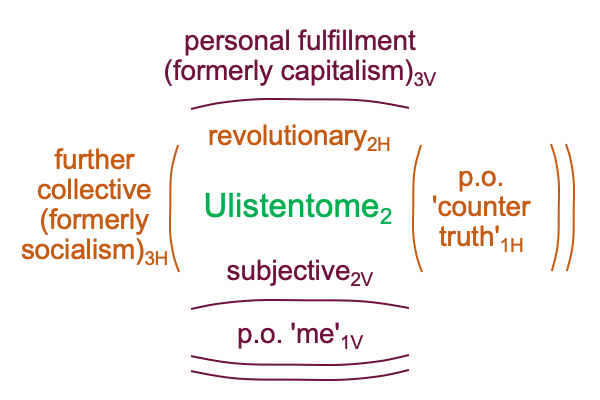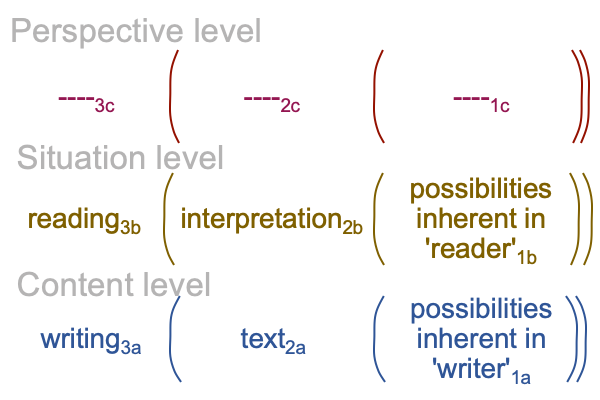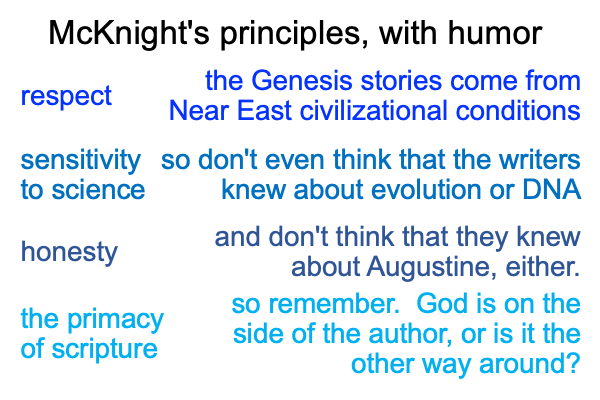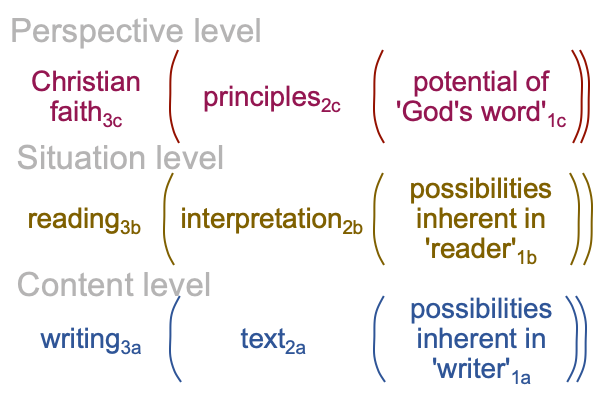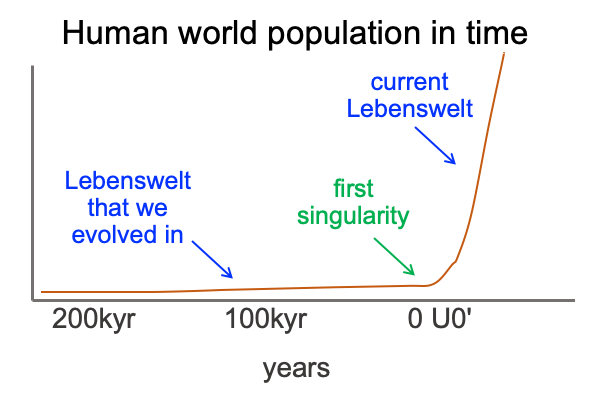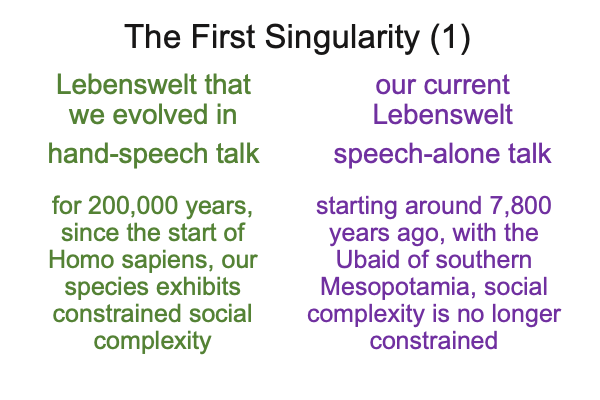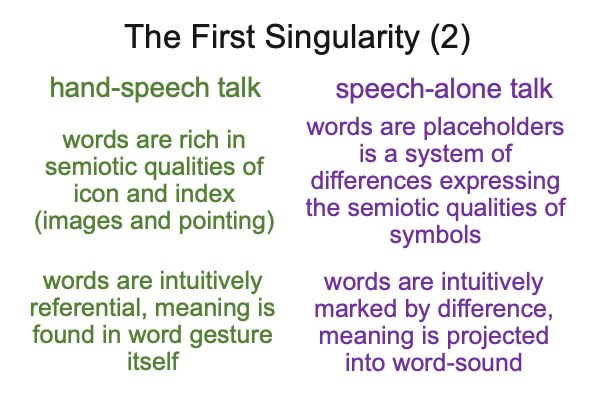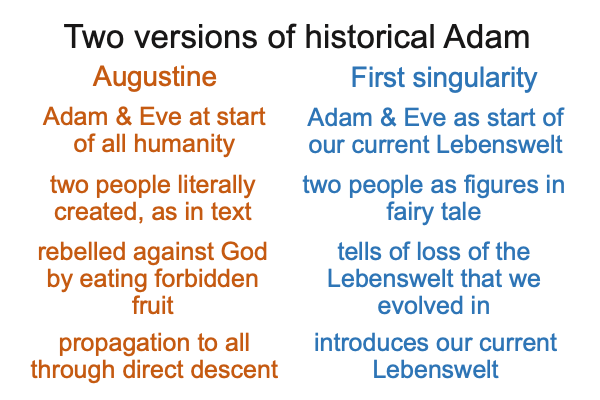Looking at Dennis Venema and Scot McKnight’s Book (2017) “Adam and the Genome” (Part 9 of 22)
0082 Perhaps, intelligent design corresponds to the fact that an intersection lies at the heart of evolutionary biology.
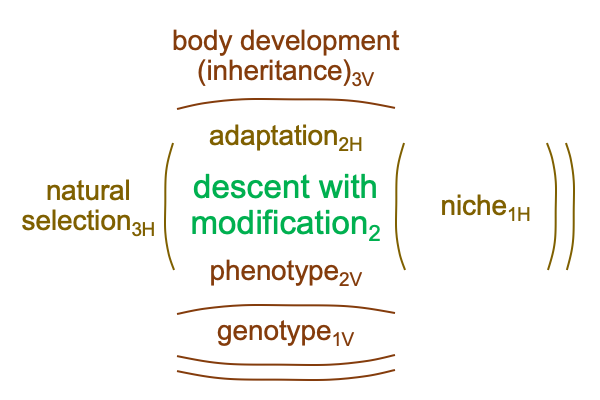
0083 Phenotype2H and adaptation2V are two mutually exclusive, contradictory and complementary actualities. They intersect to form one actuality: descent with modification2.
0084 No matter how fully one accounts for descent with modification. There is always room for a miracle.
0085 Also, there is room to ignore a miracle.
Intersections are funny that way.
0086 Intersections are introduced in the chapter on message in How to Define the Word “Religion”. Intersectionsconvey the message underlying the word.
0087 A primal example of a religious message is the intersection of action and thought.
0088 First of all, action and thought each has its own nested form.
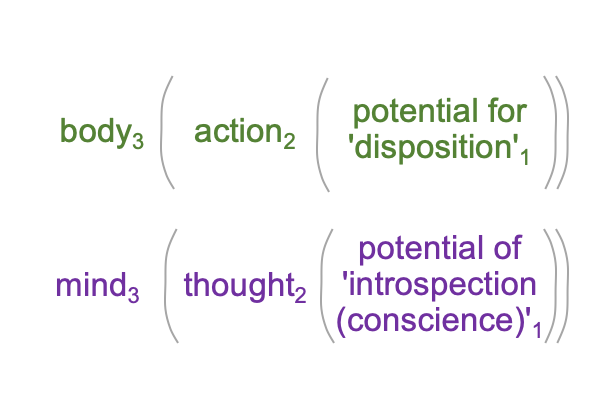
0090 If these two actualities are two independent ways of describing what is good and what is evil, then they may fuse into one – contradiction and complement filled – actuality.
0091 I diagram the following intersection in a particular manner. There are other variations. When I depict an intersection, I try to place the more celestial normal context on the vertical axis and the more mundane normal contexton the horizontal axis. To me, the following configuration is particularly evocative.
Here is the intersection of action2 and thought2.
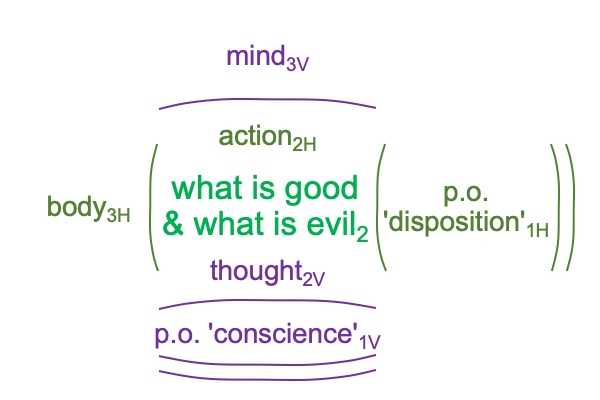
0092 The message is clear. Thought2V and action2H are two contradicting and complementing actualities. They constitute one contradiction-filled actuality2: what is good and what is evil. Thought2V cannot be divorced from action2H. Action2H cannot be isolated from thought2V.
0093 A mystery binds thought2V and action2H.
The mystery cannot be resolved without destroying the completeness of what is good and what is evil. As soon as one axis disappears, the mystery vanishes.
To me, that is the character of religious messages.
A religious message violates the rules of non-contradiction because its contradictions can never be resolved. Two actualities intersect.
Would it not be interesting if a history of civilization was written with this intersection in mind?

